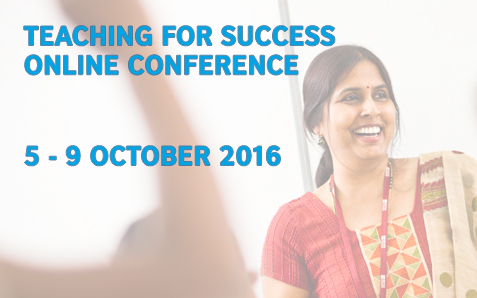
About the webinar
The British Council Morocco has been involved for two years in a support programme for the piloting of the Moroccan Baccalaureate English Option in government schools, working with the Moroccan Ministry of Education. The Baccalaureate is now being taught in five pilot schools in different parts of Morocco.
Part of this programme is the writing and delivery of modules for developing both the teaching practices and the language of the STEM (Life Science, Chemistry/Physics, and Maths) teachers, who were at A2 – B1 levels on the CEFR (Common European Framework of Reference) at the beginning of the programme this year.
We have adapted the CPD Teaching for Success framework to help us to:
- define observation descriptors and input goals for EMI STEM methodology
- write a 30-hour language support course, which is then delivered in the schools by a group of more able English teachers.
These English teachers, who don’t actually teach students on the English Option, are now English Support Trainers training their STEM colleagues in the schools in a model for sustainable development and capacity building as the programme scales up using our modules. Recent classroom observations, language testing, and questionnaires and focus groups for monitoring and evaluation have all highlighted areas of impact on both teaching and language.
We will outline the approach we took and why, and raise some interesting points about this approach to capacity building for STEM teacher support in an EMI (English as a Medium of Instruction) context.
About the speakers
Karen Hooper has more than 10 years’ experience in ‘teaching/learning through English’ contexts. She is currently Team Leader for the British Council Support Programme for the Moroccan Baccalaureate-English Option and has been involved in the project since it was launched in September 2014. She works closely with the Moroccan Ministry of Education to design and deliver continuing professional development to secondary school STEM teachers as they make the transition to teaching their subjects through English. From 2004 to 2014 she taught history in English to Italian students at state secondary schools in northeast Italy. At the same time she worked with local education authorities and the University of Trento, delivering training in Content and Language Integrated Learning (CLIL) methodology to Italian secondary school teachers preparing to teach their subjects in English. Karen is the author of the forthcoming British Council publication An English Option for Morocco and is working on an MA in Islamic Studies. She spends her free time trying to learn Moroccan Arabic and likes to escape to the open spaces of the desert whenever she can.
Pauline Taylor is a trained secondary school and ESOL teacher trainer, teacher and manager with 38 years’ experience teaching English, EAP and teacher education and support in various countries including the UK, New Zealand, the USA, China, Thailand and the Mekong region, Argentina, Bahrain, Malaysia and Morocco. She has presented ideas on person – centred teacher development at international conferences resulting in a book, ‘Readings in Teacher Development’, co-authored with Katie Head, which brings together many ideas from the IATEFL Teacher Development Special Interest Group. Most recently she has developed curriculum and materials, and supported trainers and teachers, as a British Council senior teacher on a blended learning project for upskilling the language and teaching methodology of primary and secondary school teachers in Malaysia, and written modules on inclusive education and materials selection for the global Teaching for Success series. She has also written materials to support local English teachers in Moroccan high schools to support the English language development of science and maths teachers of the new Moroccan Baccalaureate English Option, and supported EAP and EMI teachers in the development of their classroom practice, adapting modules from the Teaching for Success series. Her interest lies in effective support and collaboration amongst teachers as they support their own and their learners’ development.